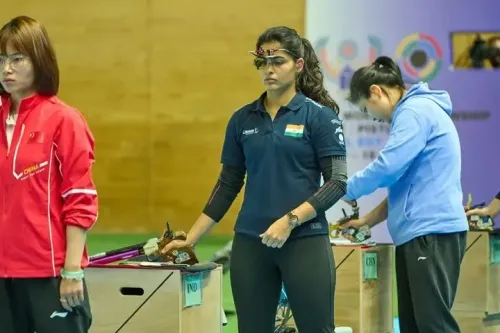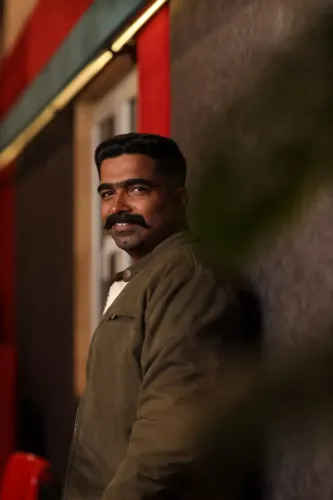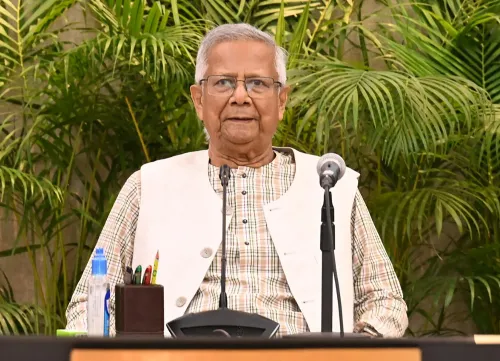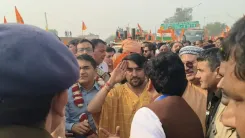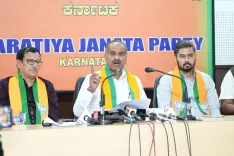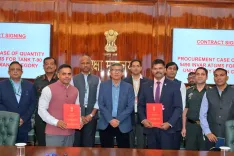Are New Kerala Leaders of Congress and BJP in Delhi for Revamp Talks?
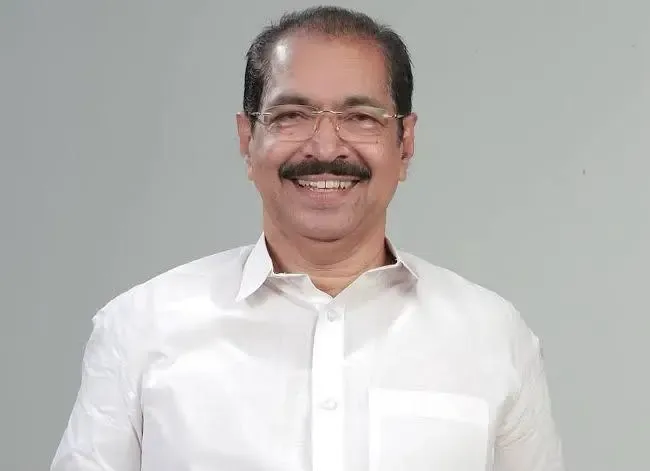
Synopsis
Key Takeaways
- New leadership in Congress and BJP signifies potential changes.
- Factionalism within Congress poses challenges.
- BJP's organizational restructuring aims to broaden leadership.
- Anticipation surrounds upcoming appointments by Chandrasekhar.
- Discussions reflect broader political dynamics in India.
New Delhi/Thiruvananthapuram, May 13 (NationPress) The newly appointed leaders of the Congress and BJP in Kerala are currently in Delhi to commence discussions aimed at restructuring their respective state party units, a customary procedure following a leadership transition.
Sunny Joseph officially assumed the role of president of the Kerala Pradesh Congress Committee (KPCC) on Monday, while Rajeev Chandrasekhar, a former Union Minister of State, was unexpectedly appointed as the president of the BJP's Kerala unit last month.
Both parties operate under a robust central leadership, with the final authority in reshaping state-level teams resting with their high commands.
Within the Congress, factionalism has been a longstanding issue, making public expressions of dissatisfaction quite common. In contrast, the BJP tends to maintain a more unified front, with internal conflicts rarely surfacing.
During Joseph’s inauguration, the absence of notable senior MPs such as Shashi Tharoor, Dean Kuriakose, and Anto Antony was conspicuous and prompted speculation. However, Joseph, recognized for his calm and gentle demeanor, downplayed this concern with a smile when questioned about it on Tuesday.
There is already a sense of unrest within the Congress regarding the perceived influence of AICC General Secretary (Organization) K.C. Venugopal, whose role is seen as crucial in the appointment process.
Focus is now directed towards whether all 14 district presidents in Kerala will be replaced and the method of filling the posts of vice-presidents, general secretaries, and secretaries.
The question remains whether the KPCC will maintain a large committee and if its influential Political Affairs Committee will undergo reformation.
Simultaneously, the BJP’s national leadership, reportedly exasperated by infighting among senior leaders in Kerala, appointed Chandrasekhar—a political outsider with limited grassroots connections—to inject a fresh perspective.
The upcoming appointments by Chandrasekhar, whether they will retain the old guard or introduce a novel team of vice-presidents and general secretaries, will be keenly observed.
In a surprising move, the BJP has restructured its organizational hierarchy in Kerala, dividing the state into 30 districts instead of the conventional 14, aiming to expand leadership opportunities.
The anticipation surrounding whether Chandrasekhar’s forthcoming appointments will bring additional surprises continues to grow.

